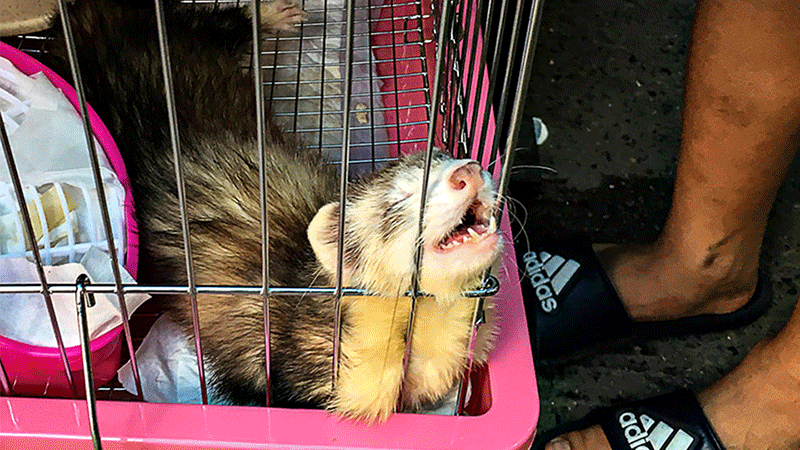In fetid rows of stalls at Bangkok’s Chatuchak Market, mongooses, polecats, meerkats, ferrets and cougars are packed in. Civet cats – which likely bridged SARS to humans – are bred and sold.
These scenes not only make people like Steve Galster anxious, they belie any claim the sprawling market isn’t an outbreak waiting to happen and already a breeding ground for viruses, as acknowledged by health officials for the first time yesterday.
“Why are they being allowed to be sold, given what we know?” Galster said today of how viruses can leap from animals to humans under such conditions. “And these dealers are taking us into the back and showing us everything else they can sell – from zebras to hippos.”
Still, the founder of anti-trafficking group Freeland, which last year seized on the pandemic to campaign against the wildlife trade’s threat to human health, was thrilled to hear an actual health official discussing the risk it poses for the first time in memory.
“I was encouraged by the fact a Ministry of Public Health official was talking about the wildlife trade and COVID-19,” he said of a disease control officer’s assurances yesterday that it was on their radar. “It was the first time we’ve ever heard the [health ministry] talk about the wildlife trade at all.”
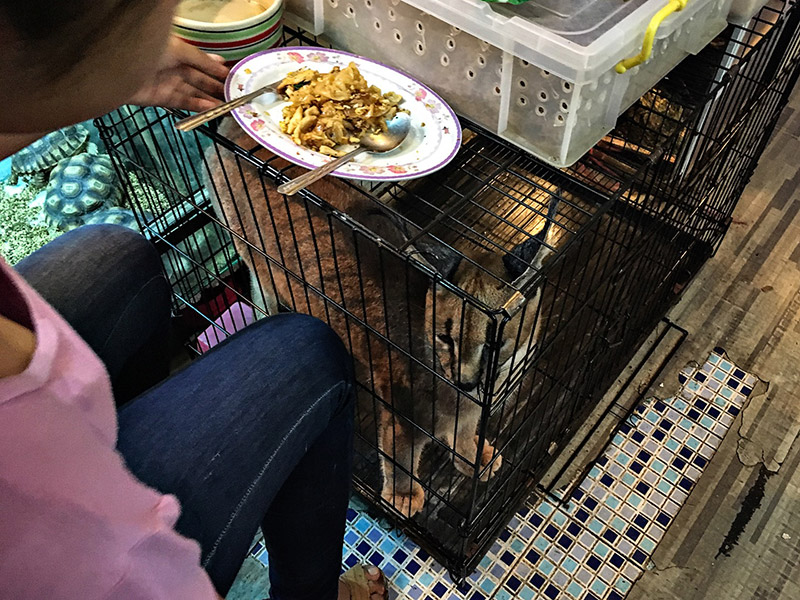
That official was Chawetsan Namwat of the Disease Control Department, who yesterday swatted down such concerns after Chatuchak was called out in a European newspaper for being the very kind of place to spawn a viral outbreak. As Coconuts noted yesterday, that story only raised the question of whether the virus could have climbed out of Chatuchak’s squalid animal pens and into Patient Zero.
Chawetsan said there was no evidence supporting that, noting that bats found earlier this month to have a very similar coronavirus are not sold at the market.
But with those comments came the first known confirmation that coronaviruses are, or have been, in circulation at Chatuchak. In a written version of his comments, Chawetsan disclosed that animals were found with coronavirus in a March 2020 inspection, but it was different from SARS-CoV-2, the virus that a month earlier had been designated COVID-19.
What Galster is most concerned about is the emergence of a bird flu, the kind of which swept Asia to devastating effect 17 years ago.
“That is to me the craziest risk from that market. You see pigeons, urban pigeons, having close contact with vultures, wild turkeys and domesticated ducks on top of pigs next to dogs,” he said. “It’s all there, stuffed together.”
The very politically sensitive question of where the outbreak truly began spilled into Thailand on Wednesday in response to Copenhagen daily Politiken’s story – a story the WHO took pains to distance itself from yesterday, even though its facts were solid.
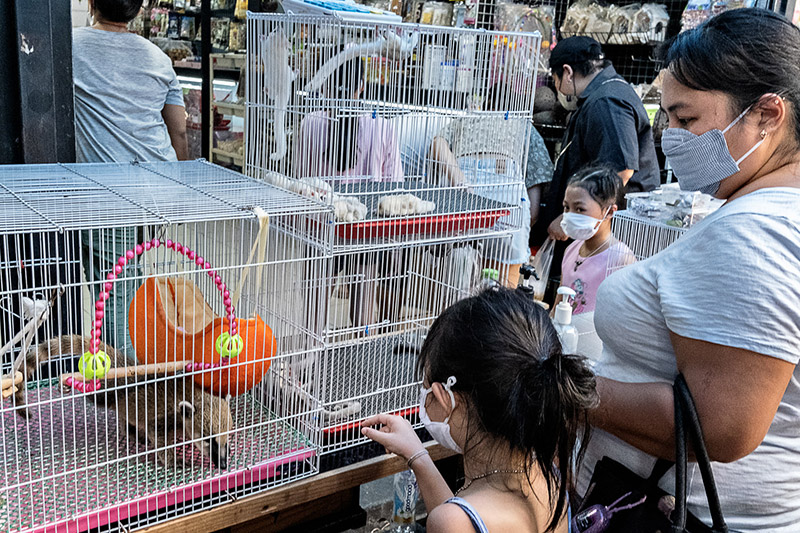
Thailand rejects speculation coronavirus emerged at Bangkok’s Chatuchak Market
“One expert member of this group was recently misquoted as suggesting that the origin of the virus was Thailand,” WHO Thailand said in a statement. “There is no current evidence to suggest this. The article with the misquote has since been corrected.”
It said that its final report would not offer a conclusion on where the virus began, but would identify areas of further study in China “and elsewhere.”
But eyes have been on Thailand since a WHO mission to China’s initial findings earlier this month raised Southeast Asia as a possible point of origin rather than China – a theory enthusiastically amplified in Chinese state media reports.
And anyone pondering just where in Southeast Asia that could be would quickly land on Chatuchak as a leading suspect, given its grotesque, unregulated trade in wildlife.
Before it spawns the next pandemic, should Thailand stamp out the wildlife trade?
For now, Galster said he’s happy to know Chatuchak is on Thailand’s public health radar. In the past, it has been the domain of wildlife officials who are unlikely to bring an epidemiological perspective.
But he said Thailand will need to do more than put on another photo-op of spraying cleaning fluids as they did last year after Freeland called attention to the issue.
“For anyone to say that this market is regulated is lying,” he said. “For anyone to say markets like this … can be regulated is like saying we can safely regulate nuclear bombs after Nagasaki.”
The best course he sees? “Shut it down today,” Galster offered in reply.
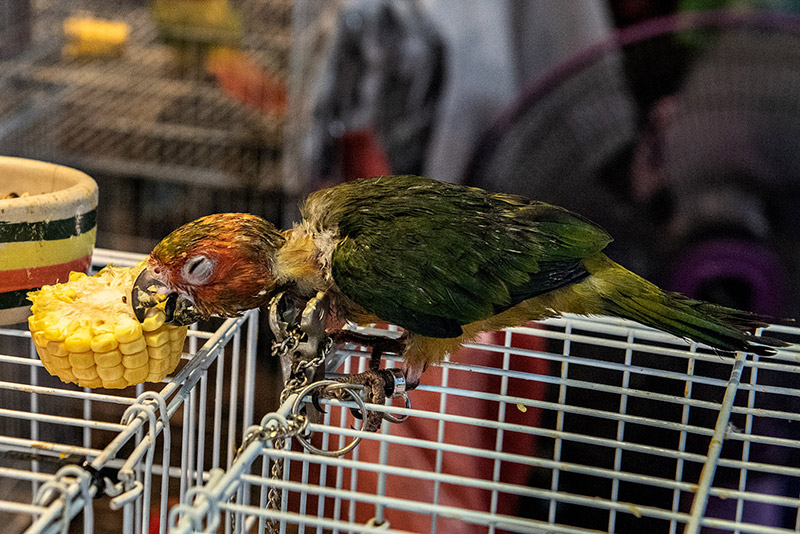
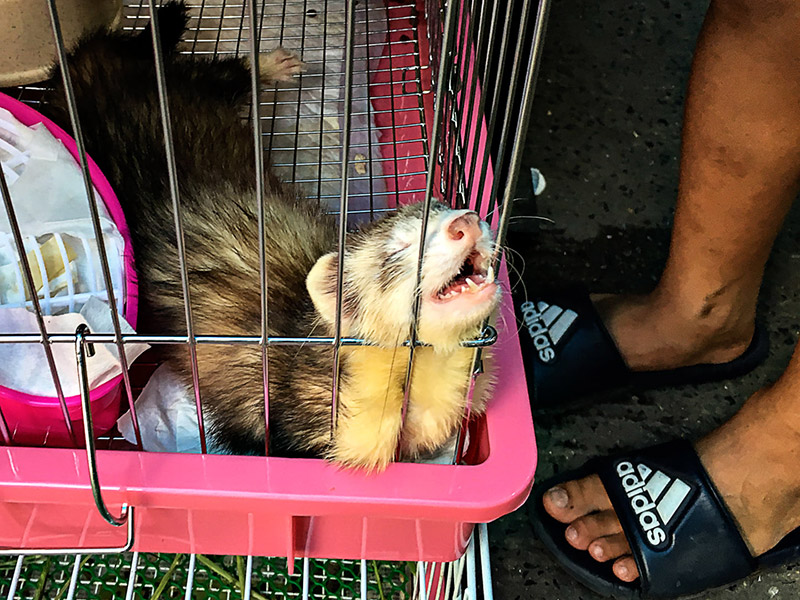
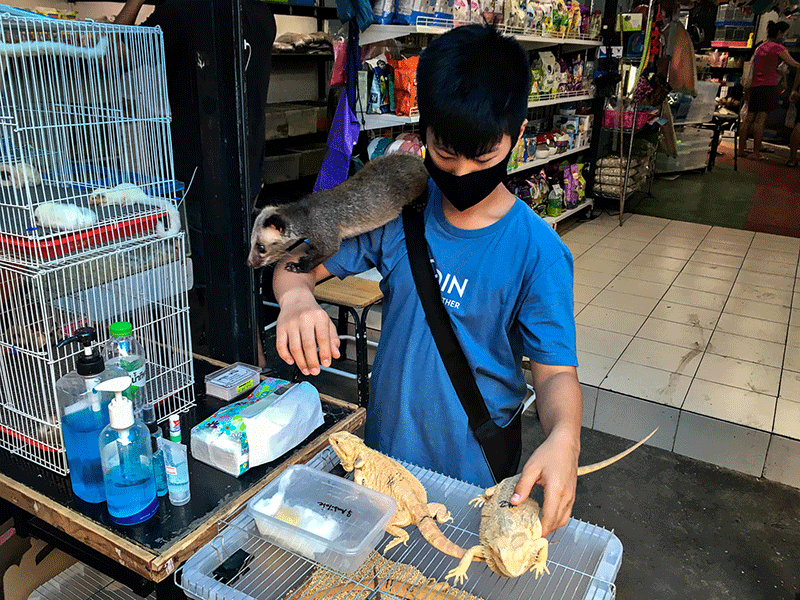
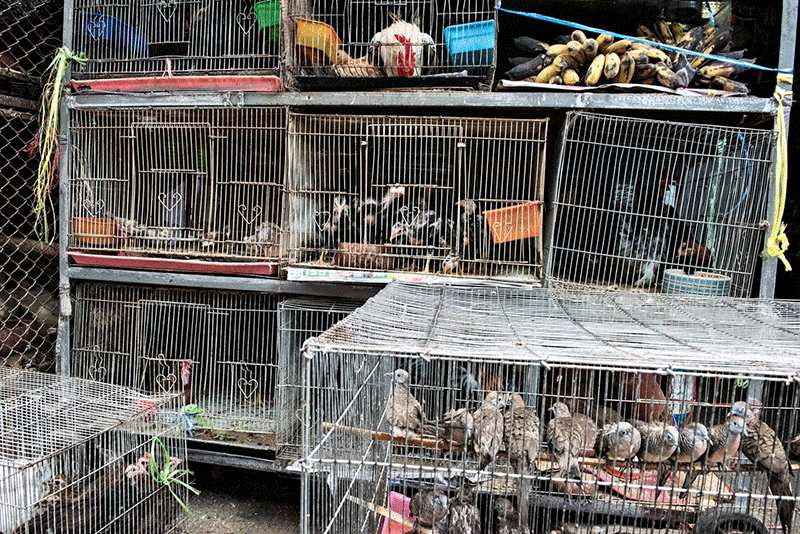
Additional reporting Chayanit Itthipongmaetee
Related
Thailand rejects speculation coronavirus emerged at Bangkok’s Chatuchak Market
Before it spawns the next pandemic, should Thailand stamp out the wildlife trade?
